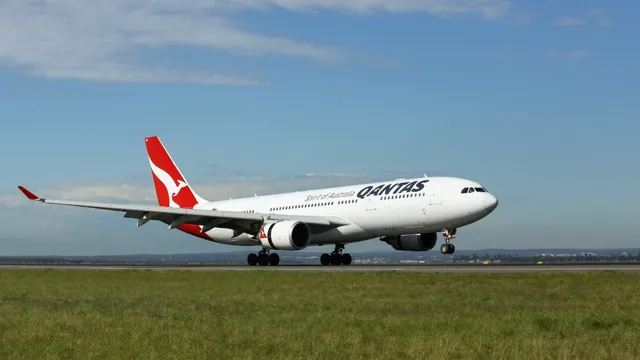
Qantas confirms significant data breach affecting millions of customers
2025-07-02 16:35- A cybercriminal targeted a third-party customer service platform used by Qantas.
- Sensitive personal information of approximately six million Qantas customers was exposed during the breach.
- The incident highlights the importance of cybersecurity for companies relying on third-party services.
Express your sentiment!
Insights
On June 30, 2025, Australian airline Qantas experienced a notable cyberattack that exploited a vulnerable third-party customer service platform. This malicious intrusion allowed cybercriminals to access sensitive personal data belonging to approximately six million customers. The compromised information comprised names, email addresses, phone numbers, birth dates, and frequent flyer numbers, significantly impacting the affected individuals' privacy and security. Qantas quickly detected unusual activity on the platform and acted immediately to contain the breach, ensuring that all core Qantas systems remained secure and unaffected. The company emphasized that no credit card details, personal financial information, or passport information were stored on the breached system, which provides some relief amidst the troubling event. Following their detection of the breach, Qantas took thorough measures to strengthen security protocols and restore customer confidence. Additionally, the airline communicated openly with its customers, apologizing and acknowledging the serious implications this incident posed for their trust. Vanessa Hudson, the Qantas Group CEO, reaffirmed the company's commitment to protecting customer data, stating the importance of cybersecurity in the airline industry as threats from cybercriminals continue to persist. The Australian Cyber Security Centre, the Office of the Australian Information Commissioner, and the Australian Federal Police were notified regarding this incident, illustrating Qantas's proactive approach to compliance and cooperation with authorities. As a result of this event, customers were advised that there was no need for concern regarding upcoming travel, and they could still access flight details via Qantas's app or website. However, this incident serves as a stark reminder of the increasing vulnerabilities faced by companies reliant on third-party platforms, underscoring the necessity for robust cybersecurity measures and monitoring across the industry to protect sensitive customer information.
Contexts
The impact of third-party cyber attacks on airlines is a growing concern in an increasingly interconnected world. Airlines, which rely heavily on technology for operations ranging from ticket sales to flight management, are particularly vulnerable to cyber threats. These attacks can be carried out by various actors, including hackers, competitor firms, and state-sponsored entities, all aiming to exploit vulnerabilities within an airline's IT infrastructure. The reliance on third-party vendors for numerous services such as online booking platforms, payment processing, and customer service gives cybercriminals additional pathways to gain access to sensitive data and affect operations. When a third-party service is breached, it can lead to a domino effect that compromises not only the vendor but also the airlines using their services, thereby creating widespread repercussions across the industry. In recent years, the aviation sector has witnessed multiple high-profile incidents of cyber attacks that have drawn attention to the vulnerabilities associated with third-party partnerships. For instance, if a reservation system operated by a third party is hacked, passenger data, including personal identification and payment information, can be exposed. Such breaches can result in loss of customer trust, financial penalties, and regulatory scrutiny. The potential for operational disruptions is also significant; a cyber attack could prevent passengers from checking in, result in flight delays, or even lead to grounded planes, which can incur enormous costs for airlines. The interconnected nature of modern airline operations means that threats are not limited to single entities but instead can spread quickly and extensively across the industry. The economic ramifications of these attacks can be severe, with estimates suggesting that a single cyber incident can lead to losses in the millions of dollars. Additionally, the airline industry must invest heavily in cybersecurity measures to protect against these threats, often allocating a considerable portion of their IT budgets for security purposes. This investment includes the implementation of advanced encryption, regular security audits, and employee training programs to enhance awareness and preparedness for potential cyber incidents. Integrating robust cybersecurity protocols with the operations of third-party vendors has become increasingly essential in mitigating risks and ensuring the overall safety of airline operations. Moving forward, it is imperative for airlines and their partners to adopt a more proactive stance regarding cybersecurity. This includes establishing stringent vetting processes for third-party vendors, ensuring they adhere to certified cybersecurity standards, and conducting regular risk assessments. Furthermore, developing incident response plans that can be enacted quickly in the event of a breach will help to minimize damage and recover lost data efficiently. As cyber threats continue to evolve, the collaborative effort between airlines, technology providers, and regulatory bodies will be crucial in safeguarding the industry from the pervasive risks associated with third-party cyber attacks.